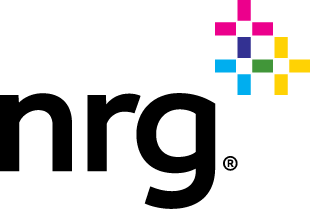Reporting for Results
Posted from NRG Power Perspectives
Earlier this year, I wrote about navigating the voluntary reporting landscape for Corporate Responsibility Magazine. As I stated then, it is an exciting time to be a sustainability practitioner, particularly in the energy industry. Working with a cross-functional team of subject matter experts to execute voluntary reporting isn’t a simple process, but by setting and tracking against the best average targets for its operations, NRG Energy is executing its vision and holding itself publicly accountable.
Companies cannot achieve goals that they don’t set, and goals without action are meaningless. There is no single entity that can mitigate climate change, but as one of the nation’s most carbon-intensive businesses—NRG is working to take a leadership role in making a difference; namely, by reducing its environmental impact while profitably growing the company.
A few years ago, NRG began a science-based approach to developing carbon reduction targets, and thereby set what continue to be some of the industry’s most aggressive goals. NRG’s executive sustainability steering committee strived to ensure that the company’s goals — a 50 percent reduction by 2030 and a 90 percent reduction by 2050 — would be relevant and in-step with its growing clean energy investments and diverse fossil-fueled fleet.
NRG’s sustainability commitments are about mitigating the operational risks associated with the negative climate impacts of carbon. Those commitments seize upon the opportunities created by consumers’ growing interest in companies who care about preserving resources for future generations; in order to stay relevant, there’s a need to take action.
NRG is not alone. As of March 2016, there are 181 companies around the globe that have publicly committed to reporting environmental, social, and governance data in mainstream reports as a fiduciary responsibility. This step toward radical transparency indicates a growing acceptance that the externalities of climate change have important implications for both economic activity and company performance. Bringing company sustainability initiatives out of the CSR group and into the c-suite pulls new players into the conversation, offers organization-wide credibility to these programs, and ensures that key stakeholders understand how smart capital commitments can be aligned for optimal impact.
The company strives to continue taking a leadership role in the conversation about integrating economic, social, and environmental metrics into decision-making. NRG’s sustainability steering committee is aligned on the importance of disclosures and worked hard to foster a sustainability-centered culture across the organization by bringing internal and external stakeholders, in addition to investors along as reporting on progress against the goals set forth in 2014 occurred. Transparency and communication are critical in NRG’s success in light of its current, ambitious carbon-reduction goals.
Voluntary reporting helps businesses and investors understand and plan for all of the social and economic responsibilities that customers expect them to address. By participating in this movement toward transparency, organizations are demonstrating their commitment to working towards a future where we can all thrive—in NRG’s case that includes an energy future that will be more diverse, distributed, and ultimately lower in carbon.

